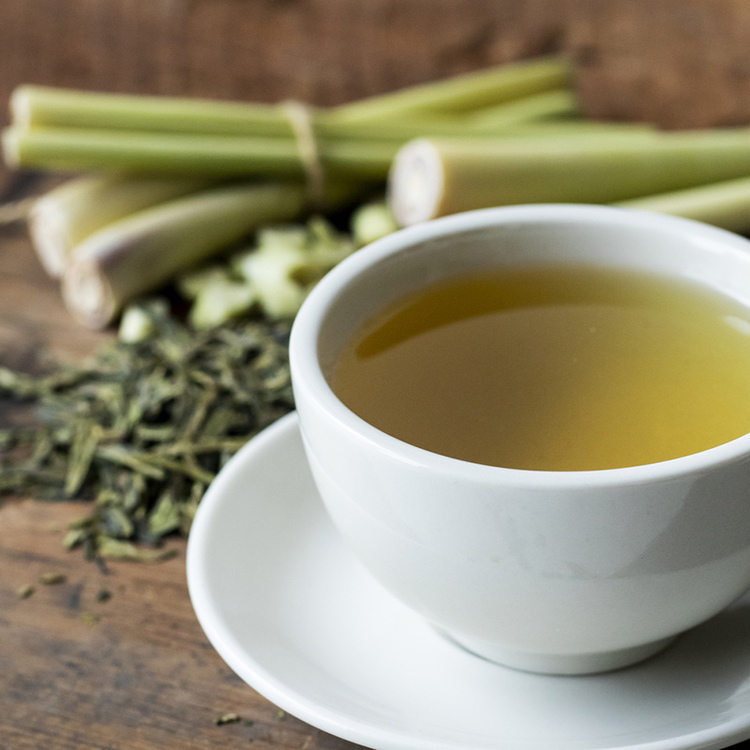Tea is more than just a beverage. It is an art form that has been enjoyed for centuries, offering a myriad of flavours, aromas, and health benefits. In recent years, there has been a growing interest in organic tea, as people seek healthier and more sustainable options.
In this blog post, we will dive into the world of organic tea, exploring its delicate flavours, discussing its benefits, and discovering the sheer artistry behind each cup.

Understanding Organic Tea
Organic tea refers to tea that is cultivated without the use of synthetic fertilisers, pesticides, or genetically modified organisms (GMOs). It is grown using sustainable farming practices, in harmony with nature. The organic certification ensures that every step of the tea production process, from cultivation to packaging, meets strict organic standards.
Exploring the Delicate Flavours
One of the most captivating aspects of organic tea is its delicate flavours. The natural cultivation methods and the absence of chemical additives allow the true essence of the tea leaves to shine through. Here are some popular varieties of organic tea and their distinct flavours:
- Green Tea
Green tea is celebrated for its fresh, grassy, and slightly vegetal taste. It offers a delicate sweetness and a subtle bitterness, making it a popular choice among tea enthusiasts. Varieties like Sencha, Matcha, and Dragon Well are known for their vibrant flavours and antioxidant-rich properties.
- Black Tea
Black tea delivers a robust, full-bodied flavour with a hint of sweetness. It often exhibits malty, earthy, and sometimes fruity notes. Organic black teas like Assam, Ceylon, and Darjeeling are cherished for their rich flavours and invigorating characteristics.
- Oolong Tea
Oolong tea falls between green and black tea in terms of flavour and oxidation. Its taste can vary significantly, ranging from floral and fruity to toasted and nutty. Organic oolong teas such as Tie Guan Yin and Dong Ding offer an exquisite balance of flavours.
- White Tea
White tea is renowned for its delicate and subtle flavours. It has a light and airy taste with floral and sometimes honey-like undertones. Organic white teas like Silver Needle and White Peony are highly prized for their elegance and nuanced flavours.
- Herbal Tea
Herbal teas, also known as tisanes, are not technically teas as they do not come from the Camellia synesis plant. Instead, they are crafted from a variety of plants, flowers, and herbs. Organic herbal teas offer an array of flavours, from soothing chamomile to invigorating peppermint, providing a delightful caffeine-free alternative.
Benefits of Organic Tea
Aside from their delightful flavours, organic teas offer a range of health benefits. Here are some reasons why incorporating organic tea into your daily routine can be beneficial:
1. Antioxidant Powerhouse
Organic tea is packed with antioxidants, including catechins and flavonoids, which help fight free radicals and protect the body against oxidative stress. These natural compounds have been linked to various health benefits, including reduced risk of chronic diseases and improved overall well-being.
2. Immune System Support
Many organic teas, such as green tea and herbal teas, contain compounds that can strengthen the immune system. They may help combat inflammation, boost immune cell activity, and promote a healthy immune response.
3. Relaxation and Stress Relief
Certain organic teas, such as chamomile, lavender, and valerian root, have calming properties that can promote relaxation and help reduce stress and anxiety. Incorporating these teas into your daily routine can create a peaceful ritual to unwind and rejuvenate.
4. Hydration and Detoxification
Drinking organic tea is an excellent way to stay hydrated, as it provides a flavourful alternative to plain water. Many herbal teas, such as dandelion and nettle, have natural diuretic properties that can support detoxification and cleanse the body.
The Artistry Behind Each Cup
Apart from the flavour and health benefits, brewing and enjoying organic tea can be an artistic experience. Here are some factors to consider to elevate your tea-drinking ritual:
1. Quality Tea ware
Investing in high-quality tea ware, such as teapots, cups, and infusers, can enhance the aesthetic value of your tea experience. Choose materials like glass, ceramic, or clay that do not interfere with the flavours of the tea.
- Correct Water Temperature and Steeping Time
Different types of organic teas require specific water temperatures and steeping times to bring out their best flavours. Pay attention to these details to ensure a perfectly brewed cup of tea.
3. Mindful Sipping
Take your time to appreciate the aroma and flavours of the tea. Engage your senses by mindfully sipping the tea, noticing the intricate flavours and nuances that unfold with each sip. Pay attention to the colour, aroma, and mouthfeel of the tea, allowing yourself to fully immerse in the experience.
4. Tea Pairings
Just like wine, tea can be paired with complementary foods to enhance the flavours of both. Experiment with pairing different varieties of organic tea with desserts, fruits, cheeses, or even savory dishes to discover exciting taste combinations that will tantalise your taste buds.
5. Tea Ceremonies
Embrace the art of tea through traditional tea ceremonies, such as the Chinese Gong Fu Cha or the Japanese Tea Ceremony. These rituals not only elevate the tea-drinking experience but also provide a moment of tranquillity and mindfulness.
Finding the Finest Organic Teas
To fully appreciate the art of tea, it is essential to source high-quality organic teas. Here are some tips for finding the finest organic teas:
- Research and Source: Look for reputable tea brands that prioritise organic and sustainable farming practices. Read reviews and recommendations to ensure the quality and authenticity of the teas.
- Certifications: Check for organic certifications, such as USDA Organic or EU Organic, on the tea packaging. These certifications indicate that the tea has met strict organic standards.
- Direct Trade: Explore tea companies that have direct relationships with tea farmers. Direct trade ensures fair compensation for farmers and guarantees the freshest and highest quality teas.
- Variety: Experiment with different varieties of organic teas to explore a wide range of flavours and find your personal favourites. Don’t be afraid to try new blends, infusions, and herbal teas to expand your tea palate.
- Local Tea Shops: Visit local tea shops or tea houses that specialise in organic teas. These establishments often have knowledgeable staff who can guide you in selecting the best teas based on your preferences.
Conclusion
Organic tea is a magnificent blend of delectable flavours, health benefits, and artistic experiences. From the delicate nuances of green tea to the robust depths of black tea, each cup offers a journey of sensory delight. By incorporating organic tea into your daily routine and embracing the artistry behind each cup, you can elevate your tea-drinking experience and embark on a path of flavour exploration and wellness.




